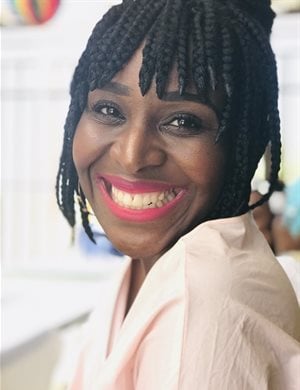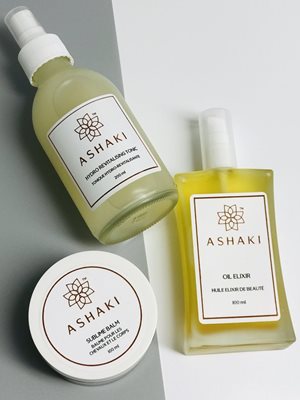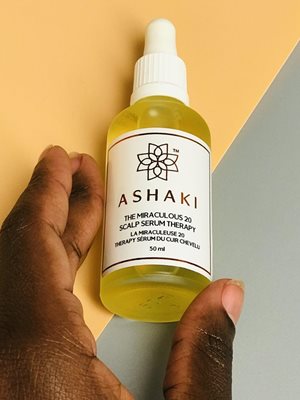Through her natural haircare brand Ashaki, Nthabiseng 'Joy' Duff has set out to prove that the beauty industry can be a positive force for change.

Ashaki founder Nthabiseng 'Joy' Duff
Ashaki's hair balms, serums, tonics and oil elixirs are designed to nourish hair naturally using sustainably-sourced, certified organic ingredients purchased from small-scale producers who pay a living wage to their workers.
The South African brand's focus on impact sourcing and its partnerships with co-operatives across Africa is helping better the lives of women in poverty-stricken rural communities, who live contrasting lives to most beauty enthusiasts in developed regions.
Here, Duff shares more on her business journey and Ashaki's approach to 'beauty with purpose'.
What inspired you to launch your own organic haircare brand?
After being fed up with my overly processed and chemically damaged hair in 2014, I decided to embrace my natural hair and embarked on a transitioning journey that changed my life.
Transitioning in the natural hair community is the process of growing out your hair before you chop off the chemically processed hair and are left with healthy natural hair.
I found I struggled to find products that were suitable and had safe ingredients, and this led to me learning all I could about my natural hair and how best to manage it and most importantly, love it!
Tell us about the ingredients that go into Ashaki products, and how these are sourced?
We based our inaugral collection on core ingredients like Marula, Baobab, Moringa and Kalahari Melon seed oils, Mafura butter and Bulbine Frutescens. All these amazing ingredients are ethically and sustainably sourced from women cooperatives based in Limpopo, Namibia and Uganda.

Eudafano Women's Co-operative in Namibia
How did you go about formulating Ashaki products and getting them stocked by retailers. What was this process like?
As my kitchen turned into a makeshift lab while I experimented with different ingredients, all in the pursuit of finding something that worked with my natural hair, so the idea of Ashaki was born. I immediately knew that I wanted to use African oils and butters and where possible active ingredients too. These base formulas became the foundation on which the brand was born.
Getting listing with retailers has been an interesting experience filled with a lot of angst and learning. After every pitch to a retailer there is always so much growth and learning. There is no perfect route, just the right timing and understanding buying cycles and a retailer's strategic focus. Most importantly, you have to build a long-term relationship.
Can you tell us more about the cooperatives and small-scale producers Ashaki has worked with, and why it was important to you for your business to have a positive social impact?
Through my travels, I've been exposed to the different grooming practices of women across rural Africa, and how they used these oils and butters. It didn't take me long to realise there was a huge disparity between the quality of life of these harvesters and the women who eventually used them. It occurred to me that I could start a brand and still do good by giving dignified work through impact sourcing our ingredients directly from them and paying a fair living wage for their produce.
This in turn means, as an Ashaki customer, when you buy any of our products you keep the circle of empowerment flowing, and in some small way we begin to shift the needle in income inequality.
What advice do you have for other budding entrepreneurs in the sustainable beauty space?
Sustainability is more than just a buzzword and trend. It has the potential to really address the world's most pressing problems in a positive way.
In the beauty space, sustainability is a 360-degree effort; from recyclable packaging, ethically sourcing ingredients to ensure they are preserved in nature for future generations, preserving the dignity of the often unseen like harvesters and the indigenous knowledge they share with us, using innovative formulations that are water-wise because we have to use water and energy sparingly, and the use of safer ingredients.
Although it’s quite challenging to be completely zero-waste there are small cost-effective steps we in the industry can take to start being more sustainable. Simply put, sustainability as a business focus and strategy ensures longevity for all.
For more information and to shop Ashaki directly visit www.iloveashaki.com. Ashaki products can also be purchased from Zando and Faithful To Nature.

















































